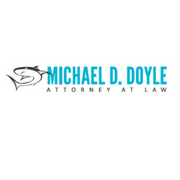3 Differences Between Chapter 13 & Chapter 7 Bankruptcy

Facing a mountain of debt with no realistic means of repaying it is, for many people, one of life's greatest challenges. Chapter 13 and Chapter 7 bankruptcy offer consumers a way out from the overwhelming pressures of such debt. Below are three key differences between these two popular bankruptcy options.
3 Differences Between Chapter 13 & Chapter 7 Bankruptcy
1. Chapter 7 Is Debt Elimination, Chapter 13 Is A Repayment Plan
When you file for Chapter 7 bankruptcy, most of your unsecured debt is eliminated. With Chapter 13, your debts are consolidated into a more manageable repayment plan, which usually lasts anywhere from three to five years. While both types of bankruptcy will stay on your credit report for approximately 10 years, they are quite different in terms of how your debt is actually discharged.
2. Chapter 7 Is Better For Those With Lower Income Levels
If your income level is so low your chances of ever paying back your debt are slim to none, Chapter 7 bankruptcy is probably the better option for you. Chapter 13 requires filers to have a specific amount of money left over at the end of each month to put toward their repayment plan. Your bankruptcy lawyer will help you explore which choice is better for your situation.
3. Chapter 7 May Not Prevent Foreclosure
 With both Chapter 13 and Chapter 7 bankruptcy, an automatic, temporary stay is placed on all foreclosure proceedings. Under Chapter 7, however, it may be in your best interests to relinquish your property after the stay has expired. Chapter 13 allows you to put your past-due mortgage payments into your repayment plan so you can take care of them along with your current mortgage payments each month. This means you can likely stay in your home.
With both Chapter 13 and Chapter 7 bankruptcy, an automatic, temporary stay is placed on all foreclosure proceedings. Under Chapter 7, however, it may be in your best interests to relinquish your property after the stay has expired. Chapter 13 allows you to put your past-due mortgage payments into your repayment plan so you can take care of them along with your current mortgage payments each month. This means you can likely stay in your home.
Don't let the stress of debt derail your peace of mind or your financial future. Let a bankruptcy lawyer help you find the solutions you need to break free of your financial challenges. Michael D. Doyle, Attorney at Law, offers Chapter 7 bankruptcy support to the Elyria, Ohio, area. Call (440) 323-0001 or visit his firm on Facebook or Twitter for more information or to schedule a consultation.
About the Business
Have a question? Ask the experts!
Send your question

